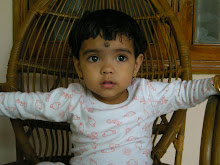By the time you telephoned me after all these years we had already lost almost everything. Along with the boxy cassette decks from our beloved seventies and along with the memories so much etched in the music of those times, you and I had lost to ravenous time a couple of more things too. We had lost the sweetness with which we had written letters. And our hearts had forgotten the rhythm in which it used to beat for postmen.
You in the North and me in the South, did we not had many Saturday evenings and late nights devoted only for writing letters, letters in which we wrote our amateurish poems reeking with love and longing? You writing about music and I writing about politics. And were you ever tired of writing about music? And didn’t that woman made of iron made me talk too much about politics, and made you complain about my obsession with her antics?
After all these decades when, on the phone, you said that you were going to Banaras and from there, after a week, to Delhi I somehow felt that you were going to make that journey in the backdrop of our beloved seventies. If you were making that journey in the phoneless seventies, then I shall be talking to you only in the way seventies allowed us to talk – through letters, through those envelopes of scripted love. So I thought once you have set out on your journey I will write two letters for you, in the way I used to write to you in those days. I thought that maybe, just maybe, the days and times of letters are not yet over; I can still revive it with my eccentricity.
I daydreamed that my first letter to you will be opened somewhere in Banaras with the faint music of the gharana tickling your ears as you read.
And then I dreamt of my second letter being opened while you walk the corridors of the Powerful Delhi.
But then the day before you were to leave to Banaras everything changed so much, so quickly. Suddenly you grew beyond distances and beyond cities. Or else you dwindled yourselves into a tiny, tiny dust lost in the trodden paths, you became as small as a syllable. Or else you simply ceased to exist and your soul returned to pure nothingness. You vanished. This time you vanished not only from my life, but from yours too.
With you – the lover of nights, music and Rumi – died all my need for ciphering my love in letters. And with you died all my hopes of reviving that world of letters.
After your death, your life – with all its lost possibilities – ceased to flourish in my mind. But your death began to grow feeding on my thoughts that wriggle through the pores of numerous possibilities. Just like how deaths usually does in the minds of living.
Was what happened just your death alone – the death of a woman who had lived lives which others too lived and loved things others too loved? Or are there more significances to your death? Is it a sign of the deaths of profounder truths and wider worlds?
Your death might be just a scene in the more melodramatic death of handwritten letters. Perhaps you do not solely own your death. But it is a part of the more schematic death of letters. Your death was indeed one more pillar foundering as the world of letters crumbled, one more letter fallen as the stack of letters collapse. Through your death, the world of letters lost one more chance to resuscitate.
Again, with your death what I might have witnessed is a more tragic death than the mere death of handwritten letters and the fall of the world of letters. For millennia men and women of our beloved country have travelled incessantly to the Serene Banaras with the hope of ascending to the Eternal Delhi. What I might have witnessed, and what you have gone through, is not simply your death but the systematic death of such hopes and cessation of such attempts.
